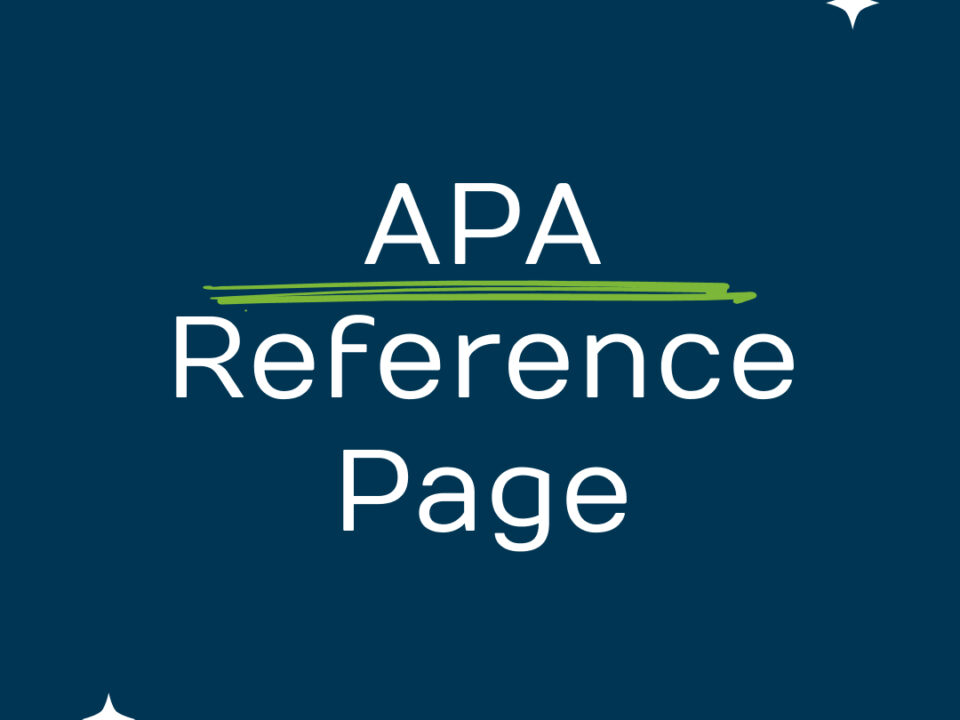Introduction to Academic Research: Understanding the Landscape
In Avestina Research Asisst we will discuss Strategies for Efficient Research. Academic research is essential for advancing knowledge and stretching the limits of human understanding. It entails a methodical examination and evaluation of a given subject or problem, to provide fresh ideas and viewpoints to a specific area of research. Academic research covers a broad array of fields and approaches. Comprehending this terrain is crucial for researchers to navigate the extensive array of information and resources at their disposal, and to efficiently convey their discoveries to the academic community.
An academic research introduction offers a summary of the fundamental concepts and procedures that regulate the research process. The process involves comprehending the research question, performing an extensive literature review, developing a research technique, gathering and analyzing data, and interpreting and presenting the findings. Researchers must also take into account ethical factors, including as safeguarding the privacy and anonymity of participants and gaining informed consent. By addressing these core components of academic research, researchers may guarantee the accuracy and dependability of their results, and make a significant contribution to the existing knowledge in their area of study.
Researchers need to be aware of the different resources and tools available to assist their work to navigate the research landscape successfully. This encompasses academic periodicals, databases, libraries, and research organizations that offer a wide range of scholarly articles, books, and research reports. Engaging with other researchers and participating in conferences and seminars provide significant chances for networking and exchanging ideas. Researchers can enhance knowledge in their field and build a reputation as renowned scholars by actively participating in the academic research community.
Identifying Key Academic Journals in Your Field
To pinpoint crucial academic publications in your research topic, it is vital to carry out a comprehensive literature evaluation. Start by exploring reliable databases like PubMed, JSTOR, or Web of Science to find pertinent articles and publications. Consider the frequency of citation and impact factor of these publications to assess their influence and trustworthiness in the academic world.
After creating a list of possible journals, thoroughly assess their scope and focus to guarantee they match your study interests and objectives. Search for journals that frequently publish articles within your area of research to improve the chances of your work getting approved for publication. Furthermore, take into account the editorial board’s reputation and the peer-review procedure of the journal, as these elements can influence the quality and thoroughness of the published research.
Seek suggestions from coworkers, mentors, or professors in your study field regarding important academic periodicals. Connecting with professionals in your field might offer helpful advice on which publications are respected and influential in your area of study. By conducting comprehensive literature research and following expert advice, you can find important academic publications that will improve the visibility and credibility of your research among the academic community.
Effective Search Techniques for Academic Articles
Employing efficient search algorithms can streamline the process of finding academic articles and lead to more favorable outcomes. Utilizing precise keywords relevant to your research topic is a crucial search strategy. By selecting specific terms and phrases, you may refine your search results to focus solely on articles that pertain directly to your field of interest. Using Boolean operators like “AND,” “OR,” and “NOT” can assist in crafting intricate searches that yield more accurate and focused outcomes.
Another important tactic for locating academic articles is to make use of the advanced search capabilities provided by databases and search engines. Several academic databases include features to refine search results by publication date, author, and journal-title, among other criteria. Researchers can efficiently find suitable publications for their study by utilizing these advanced search tools. Some databases provide the feature to store searches or create notifications for new publications in a particular topic, enabling researchers to remain informed about the newest research advancements.
To search for academic publications effectively, one must be persistent and examine many sources of information. Researchers should explore multiple databases and search engines to get a variety of publications and resources. Researchers can improve the quality and depth of their literature review by using various search approaches and research procedures, resulting in more robust and well-informed study outcomes.
Utilizing Academic Databases for Optimal Results
Employing efficient search algorithms can streamline the process of finding academic articles and lead to more favorable outcomes. Utilizing precise keywords relevant to your research topic is a crucial search strategy. You can refine your search results by selecting specific terms and phrases that are closely linked to your area of interest. Using Boolean operators like “AND,” “OR,” and “NOT” can assist in crafting intricate searches that yield more accurate and focused outcomes.
Utilize advanced search options provided by databases and search engines to find scholarly articles. Several academic databases offer filtering options based on publication date, author, and journal title, among other criteria. Researchers can efficiently find relevant publications for their study by utilizing these advanced search tools. Some databases provide the feature to store searches or create notifications for new publications in a certain topic, enabling researchers to remain informed about the most recent research advancements.
When searching for scholarly articles, it is crucial to be persistent and investigate several sources of information. Researchers should explore multiple databases and search engines to get a variety of publications and resources. Researchers can improve the quality and depth of their literature review by using various search approaches and research procedures, resulting in more robust and well-informed study outcomes.
Mastering Abstracts and Keywords to Streamline Research
For optimal academic research outcomes, it is essential to use academic databases that provide a wide array of scholarly resources. Academic databases offer a plethora of peer-reviewed articles, research papers, and journals throughout many fields of study. Researchers can enhance their search efforts and access reliable and pertinent sources for their study by utilizing these databases.
Optimizing research is crucial when utilizing academic databases to improve the quality and trustworthiness of research results. These systems enable researchers to refine their search parameters using keywords, topics, authors, and publication dates, helping them obtain the necessary material more efficiently. Researchers can expedite their search process and discover the most up-to-date and credible materials to bolster their work by utilizing sophisticated search capabilities and filters in academic databases.
Effective search strategies are crucial for browsing academic resources to retrieve useful information necessary for conducting high-quality research. Researchers can obtain precise and targeted results by refining search queries and using Boolean operators that fit closely with their study goals. Academic databases include a wide range of materials that can greatly improve the quality and scope of research initiatives, making them essential tools for researchers aiming for the best outcomes in their academic pursuits.
Mastering Abstracts and Keywords to Streamline Research
Proficiency in abstracts and keywords is crucial for optimizing the research process and improving research productivity. Abstracts offer a brief overview of a study publication, enabling researchers to promptly evaluate its pertinence to their own research. Researchers can easily select relevant publications and prioritize their reading by carefully reading and assessing abstracts. Understanding how keywords are assigned to publications might help scholars search for and find relevant literature more efficiently.
Keywords are essential for organizing and categorizing study publications, facilitating researchers in navigating through extensive information. Researchers can limit down search results and find publications relating to their research topics by choosing and using relevant keywords. This process saves time by removing extraneous information and allows researchers to quickly access the most relevant papers, therefore enhancing research efficiency.
Mastering abstracts and keywords is crucial for streamlining the research process and increasing efficiency. Researchers may optimize their literature search, promptly pinpoint crucial papers, and improve the impact and quality of their research projects by efficiently using these tools. By employing a systematic method to examine abstracts and include keywords, researchers may guarantee that their study is comprehensive, targeted, and well-informed.
Critical Analysis of Academic Sources: Ensuring Credibility
During research, it is essential to critically analyze academic sources to verify their trustworthiness. It includes evaluating the author’s credentials, the publication or journal where the source is located, and the study methods. Through a rigorous analysis of these factors, researchers can assess the credibility and accuracy of the information provided.
Academic sources are crucial for bolstering arguments and supplying proof in scholarly endeavors. It is crucial to differentiate between credible and dubious sources as not all sources are of equal quality. Through a critical analysis of academic sources, researchers can verify the accuracy, reliability, and relevance of the information to their research issue.
Source credibility is crucial in academic research as it indicates the quality and dependability of the material being given. Researchers need to carefully evaluate sources to determine their authenticity and make sure they are utilizing reliable and authoritative sources in their research. Researchers can enhance the credibility of their research findings and provide new insights into their field of study by doing this critical examination.
Maintaining an Organized Research Workflow
It is crucial to maintain an ordered research workflow to ensure research organization and maximize workflow efficiency. Establishing a systematic strategy to handling research materials and data is crucial for sustaining an organized research process. Tasks may involve establishing an intricate filing system for documents, arranging digital files logically, and managing sources and references. Establishing a well-organized system enables researchers to efficiently find and retrieve necessary information, therefore saving time and minimizing the chance of missing crucial data.
It is crucial to manage deadlines and priorities to maintain an orderly research workflow. It requires establishing precise objectives and timeframes for every phase of the research, consistently tracking advancement, and modifying schedules when necessary. Researchers can successfully prioritize activities, manage resources efficiently, and maintain the research project on schedule by monitoring important dates and milestones. This proactive research management strategy assists researchers in maintaining focus, achieving research objectives, and producing high-quality results promptly.
Effective communication and teamwork are essential for maintaining an organized research process, along with adopting a systematic strategy to managing research materials and data, and staying on top of deadlines and objectives. Researchers must consistently engage in communication with their team members, mentors, and collaborators to exchange information, analyze discoveries, and tackle any obstacles that may emerge. By promoting open and transparent communication, researchers may establish clarity, avoid misinterpretations, and cultivate a cooperative research atmosphere. This cooperative method of overseeing research improves efficiency, encourages innovation, and helps researchers reach their study objectives more efficiently.
Citation Tracking and Reference Management Tools
Citation tracking and reference management systems are essential in research since they help researchers monitor sources, arrange references, and accurately credit them in their work. These tools assist researchers in giving proper acknowledgment to the original authors and providing accurate references for readers to access the sources directly. Researchers can uphold the integrity of their work and comply with academic citation requirements by utilizing citation tracking and reference management systems.
Citation tracking and reference management solutions offer the advantage of effortlessly creating citations in several styles like APA, MLA, or Chicago. This automates the formatting of references, saving researchers time and allowing them to focus more on the research itself. Moreover, these tools frequently offer functions like keyword tagging and annotation capabilities, which can enhance the efficiency of the research process and assist researchers in maintaining their references in an orderly and readily available manner.
Citation monitoring and reference management systems are crucial for researchers who aim to uphold accuracy and credibility in their work. Researchers may conveniently handle their references, produce citations in different styles, and guarantee accurate attribution to the original authors by using these tools. These technologies are essential resources for researchers in the fast-paced research climate of today, aiding in the creation of high-quality and well-documented work.
Staying Current with Literature: Alerts and Updates
Remaining up-to-date with literature is one of the crucial Strategies for Efficient research for anyone employed in academic or research sectors. Subscribing to literature updates and research notifications allows professionals to stay informed about the latest advancements in their sector. The alerts offer essential information on recent studies, publications, and breakthroughs, enabling users to stay informed and keep their work current. Keeping track of academic updates is essential for researchers and educators to be informed about the most recent trends and discoveries in their fields.
Research notifications are highly beneficial for professionals who require up-to-date information from the literature in their specific expertise. Researchers can stay up-to-date with the latest knowledge and information by subscribing to notifications for new papers and studies. These alerts assist professionals in keeping up-to-date with the most recent research and discoveries, potentially sparking new initiatives or fields of study. Staying current with literature updates is crucial for preserving relevance and reputation in the academic world.
Professionals in academic and research environments must stay up-to-date with literature by utilizing notifications and updates. Subscribing to research alerts and literature updates helps individuals stay current and well-informed about the newest advancements in their area. Academic updates offer important information on recent studies, publications, and progress, assisting professionals in staying informed and maintaining their reputation in the academic field. Individuals need to prioritize remaining informed and keeping up-to-date with literature to succeed in their fields.
Conclusion: Optimizing Your Academic Research Approach
Ultimately, Strategies for Efficient Research have a critical role in academics. refining your research strategy is essential for achieving academic excellence. Strategically arranging your research methods can enhance the quality and efficiency of your academic work. This involves choosing suitable sources, employing different research methods, and critically evaluating evidence to reach significant conclusions. A carefully planned research methodology can improve the reliability and thoroughness of your academic work, resulting in superior research results.
When refining your research strategy, it is crucial to take into account the precise goals and objectives of your academic endeavors. Defining your research topic and objectives helps you concentrate on collecting pertinent information and data to back up your study conclusions. Being organized and using a methodical research technique will help you remain focused and prevent wasting time on useless material. Optimizing your research method in this manner can streamline the research process and enhance your likelihood of obtaining academic achievement.
In conclusion, refining your research strategy is crucial for attaining academic excellence. Strategically designing and implementing your research methods can improve the quality and trustworthiness of your academic work. By employing suitable sources, methodologies, and tactics, you can enhance your research results and derive significant findings that provide value to the academic community. Optimizing your research strategy is crucial for excelling in your academic pursuits.




